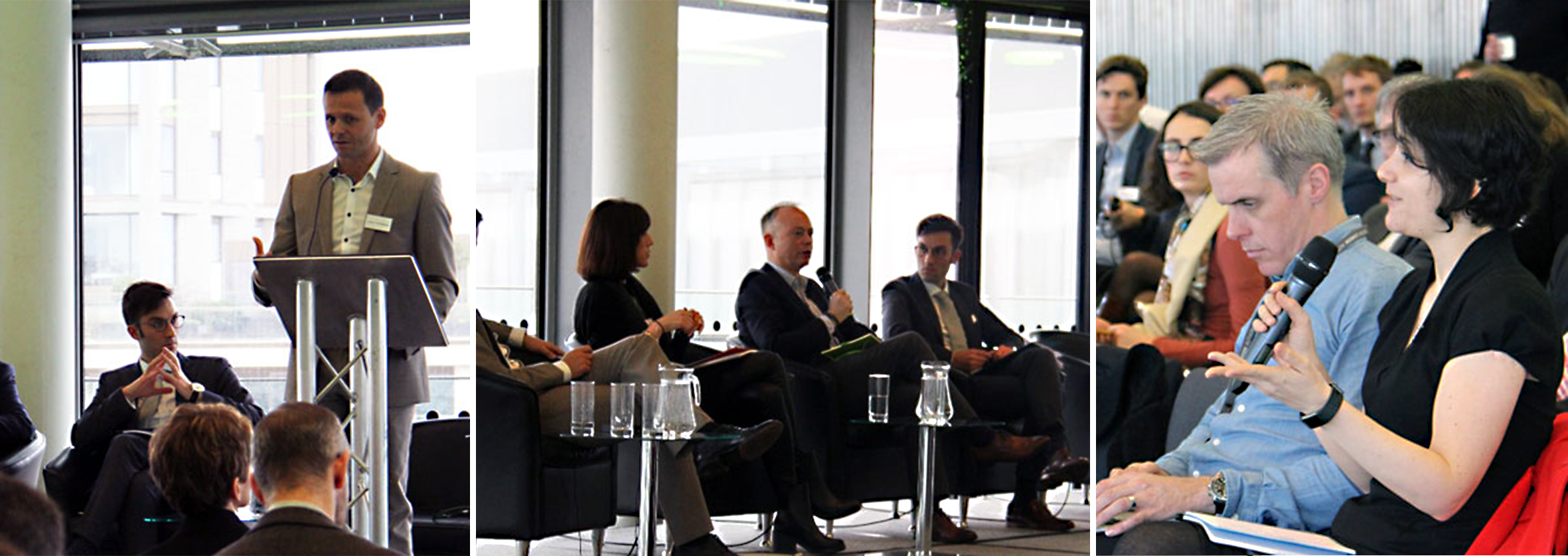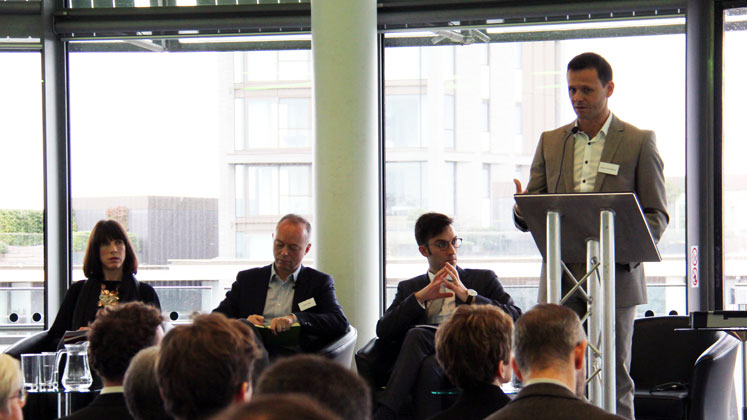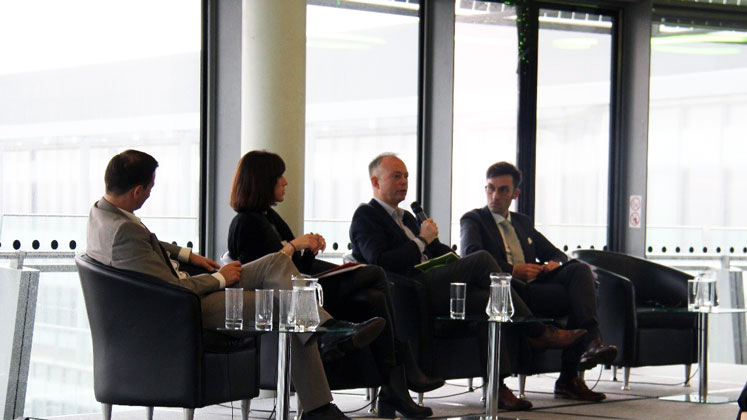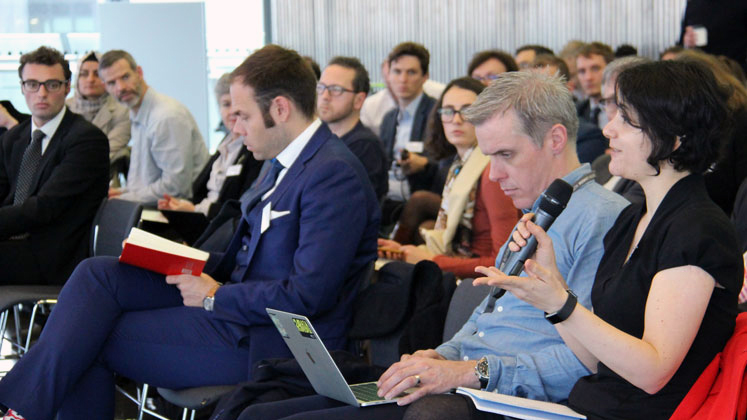
Efficient use of urban data could make cities more livable in the near future – Urban data conference in London




Lesen Sie den Artikel hier auf Deutsch.
The “Moving Urban Data Markets Conference“ was recently held in London, jointly organized by LSE Enterprise, the business, consulting and innovation arm of the London School of Economics and Political Science, the UK Department for International Trade, the Innovation Centre for Mobility and Societal Change (Innoz), the British Embassy in Berlin and the Fraunhofer Institute for Industrial Engineering IAO. The event brought together selected experts, practitioners and thought leaders from government, industry and research institutions to share their thoughts and experiences about the managing, governing, trading and servicing of urban data to make our cities more livable in the near future.
Various opportunities to improve everyday life for citizens by creating smart services
The data specialists from London, Berlin and beyond discussed ethical questions of data use regarding health and privacy as well as circumstances under which private companies should get access to public data and how they could make proper use of it to provide new businesses and services. Not only private sector companies but also cities could benefit from using urban data to improve their services and subsequently make cities more liveable. In order to do so, they have to adapt to new ways of interaction between citizens and public services. Additionally the use of urban data opens a wide range of possibilities to improve everyday life, such as enabling new participation formats, using technical innovations like contactless payments or gathering data using WiFi networks to understand how millions of people navigate the public transportation network. The conference was opened by Theo Blackwell, the Chief Digital Officer of the Greater London Authority, who emphasized the importance of data for all public services as well as the cities economy and the entire society. The event included four sessions, to cover certain data related topics, such as managing urban data, trading urban data or servicing urban data.
Govern data in the best interest of citizens without jeopardizing business opportunities
Our Fraunhofer governance experts Alanus von Radecki and Petr Suska participated in the second panel about governing urban data and held a keynote about the importance of data for smart city concepts and the recently launched research project „Value of urban data“, which is part of the Morgenstadt research initiative. They demonstrated how private and public data could be used to connect different urban subsystems to each other to enable smart urban services and make cities more sustainable. For example, data, gathered by sensors in residential buildings could be used to manage wastewater treatment more efficiently and consequently diminish the amount of required resources. Furthermore, the researchers presented a couple of pilot projects from various European cities, such as the implementation of sound sensoring technologies in the Dutch City of Eindhoven to detect antisocial behavior for crime prevention or E-Bike sharing systems in Manchester to reduce traffic within the city. Urban data also holds the key to boosting the local micro economy of a region by enabling new business models, such as rental platforms for apartments or vehicles. Both researchers emphasized that despite the benefits of efficient data use governments have to balance conflicting interests regarding data: the very nature of data brings a new challenge to city governance raising questions like when to treat data as common good, when to protect business value in data and how to secure civil rights. The core challenge will be to govern data in the best interest of citizens and the public good without jeopardizing potential business opportunities that lie within urban data sets. That leads to a fundamentally new form of public-private partnerships with data as an instrument of power and wealth.
ss7
Statements of our partners:

Christian Thiel, Project Manager Global Market Development, LSE Enterprise London School of Economics and Political Science
“I was literally blown away by the output of this “Anglo-German data brain” on managing, governing, trading and sharing urban data in London, Berlin and beyond. I wanted to thank you very much for sharing your time, expertise and insights with us in the context of the Moving Urban Data Markets Conference.”
Further information for download
Value of urban data
Get further information about the research project as Download.